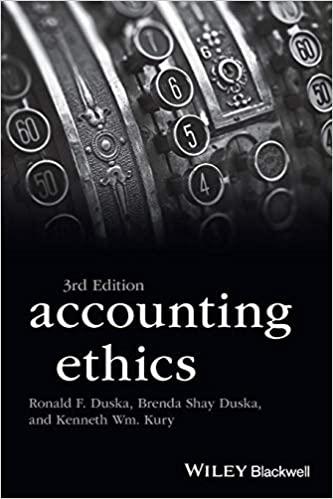Question
True or False questions: 1. Taxpayer A and the IRS are locked in intense litigation over As income tax liability for the year 2016. The
True or False questions:
1. Taxpayer A and the IRS are locked in intense litigation over As income tax liability for the year 2016. The case is on its way to the U.S. Supreme Court. There is a split of opinions between the various Circuit Courts regarding the point of law around which this litigation revolves. The attorney for the government has considerable doubt about As liability for the tax because of the split of authorities and the IRS believes that a Supreme Court ruling contrary to its position is probable. A, who is equally unsettled about the pending litigation, comes to the government and makes an offer in compromise to settle the dispute by paying 50% of the assessed tax. Nevertheless, the government is prohibited by law from accepting such an offer in compromise.
2. Taxpayer J substantially understated his income for the tax year 2015 but correctly stated his deductions. For the year 2014, J substantially overstated his deductions but correctly stated his income. The three year statute of limitations period has run as to both returns. However, the IRS is asserting that the 6 year limitations extension is applicable to both the 2015 understatement of income and the 2014 overstatement of deductions. The IRS will prevail as to both years on this extended limitations theory.
3. In 1997, the IRS sued Taxpayer Q in federal district court and obtained a judgment against Q for unpaid taxes, penalties and interest. The IRS took all the appropriate post-judgment actions required by law. However, shortly thereafter, the file fell behind the attorneys desk and was not discovered until recently. The IRS is now seeking to collect the judgment against Q. Q is defending this collection effort by asserting that there is a 10 year limitations period for collection of assessed taxes and that this 10 year period has long ago expired. Q will prevail on this theory.
4. The IRS can assess civil penalties for a taxpayers failure to file a return or for a taxpayers failure to pay the tax but not for both.
Thank you!
Step by Step Solution
There are 3 Steps involved in it
Step: 1

Get Instant Access to Expert-Tailored Solutions
See step-by-step solutions with expert insights and AI powered tools for academic success
Step: 2

Step: 3

Ace Your Homework with AI
Get the answers you need in no time with our AI-driven, step-by-step assistance
Get Started


